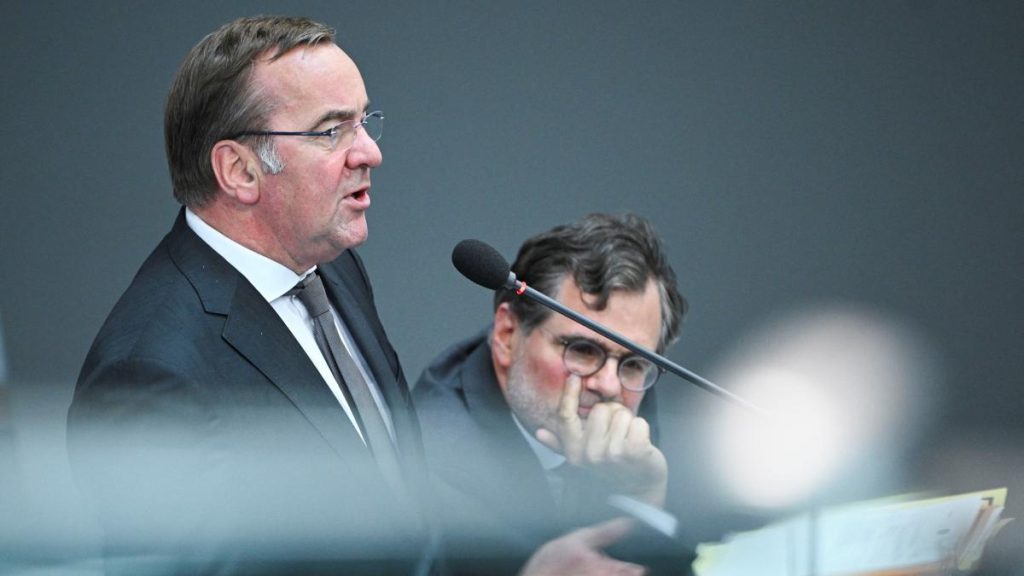Bundestagspräsidentin Bärbel Bas has warned Defense Minister Boris Pistorius to be more moderate in his comments towards the far-right AfD party during a session in the Bundestag. The Minister had made remarks regarding the party which were deemed disrespectful, prompting Bas to urge him to treat all Members of Parliament with respect. Pistorius had previously mentioned the need for the military to be ready for war by 2029, emphasizing the importance of being prepared to deter any potential threats.
Pistorius received criticism for his remarks during the parliamentary session, especially in light of recent controversies involving AfD parliamentarians Maximilian Krah and Petr Bystron, who are under investigation for potential connections to pro-Russian networks and allegations of receiving money from foreign entities. Additionally, one of Krah’s staff members was arrested on suspicion of espionage for China. The Minister’s comments and the ongoing investigations highlight the sensitive nature of the relationships between politicians and foreign actors, raising concerns about potential foreign influence in German politics.
During the questioning in the Bundestag, Pistorius reiterated the need for strengthening the Bundeswehr and ensuring that it is combat-ready by 2029. He emphasized the importance of deterrence to prevent any potential conflicts from escalating to a point of no return. Pistorius also expressed his belief that compulsory elements should be reintroduced into military service, suggesting a new form of national service that includes responsibilities for individuals serving in the armed forces.
In addition, the Minister called for increased investment in the Bundeswehr’s capabilities, ranging from combat tanks to mobile field kitchens, stressing the importance of modernizing and equipping the military with the necessary tools and resources. As discussions continue within the coalition government about the defense budget for 2025, Pistorius pointed out that the 100-billion-euro special fund allocated for the Bundeswehr has already been fully allocated, limiting the possibility of new procurement contracts under current financial constraints.
The exchange between Pistorius and Bas highlights the tensions within the Bundestag regarding national security and defense policy, as well as the need for politicians to engage in respectful dialogue and conduct themselves professionally during parliamentary sessions. The warnings issued by Bas serve as a reminder of the importance of maintaining decorum and civility in political discourse, particularly when discussing contentious issues such as military preparedness and foreign relations, which can have far-reaching implications for Germany’s national security and international standing.
Overall, the developments in the Bundestag reflect the complex dynamics of German politics, with debates over defense spending, military readiness, and foreign relations intersecting with concerns about political influence and accountability. As the government grapples with these challenges, it remains essential for policymakers to uphold democratic values, adhere to ethical standards, and prioritize the security and well-being of the country and its citizens in shaping their policies and decisions. By addressing these issues, Germany can navigate the complexities of the current political landscape and uphold its commitment to safeguarding its national interests and values in an increasingly interconnected world.


